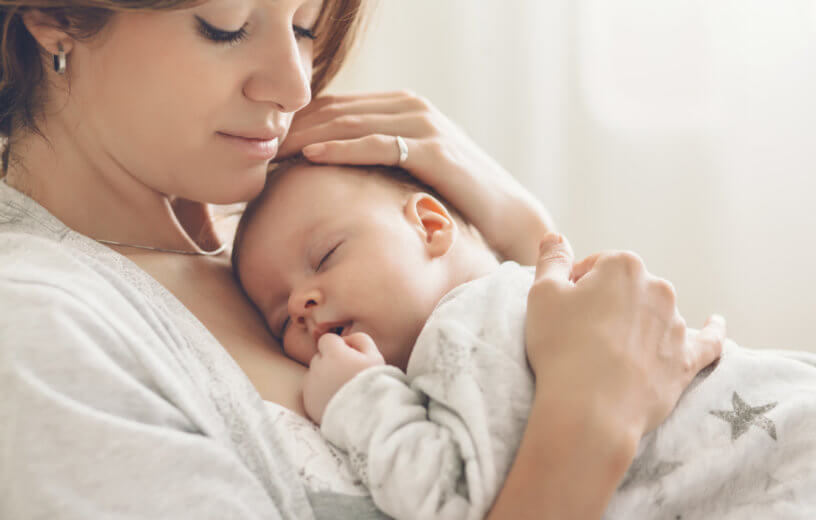HEIDELBERG, Germany — We inherit a whole lot from our parents. Appearance, of course, but many people also share similar personalities or demeanors with at least one parent as well. On a concerning note, a new study from the European College of Neuropsychopharmacology finds babies born to mothers dealing with depression or anxiety often show physiological signs of stress themselves.
These babies tend to exhibit a faster heart rate than other newborns in response to stress. This leads researchers to speculate that they’ll be predisposed toward emotional stress while growing up.
It’s no secret that mother-newborn interactions following the delivery are incredibly important for the child’s development and overall health. It’s also well established that some new mothers dealing with issues such as depression, anxiety, and postpartum depression struggle to connect with their child. This can have a negative impact on the baby, often leading to insecurities and emotional problems at a later age.
Babies know when their mother is feeling depressed
For this new study, researchers used a mother/baby experiment first created in the 1970s to gauge the effect of emotionally distant mothers on their babies. The “Still Face Test” consists of two phases. During the first part, a mother and child play and interact in a happy, cheerful manner. In phase two, the mother essentially turns off all her emotions and responses, greeting her child with a blank expression no matter what the child does. Predictably, during the second phase, virtually all babies become upset and show signs of stress.
The new report used the “Still Face Test” once again. This time however, it included mothers who were particularly anxious or depressed at the time of birth. During phase two, these infants showed a much higher heart rate jump than other babies born to healthy mothers. On average, these babies’ hearts were beating eight beats per minute more than other infants.
Babies born to anxious or depressed mothers were also described by their parents as more temperamental than the typical infant.
Imprinting trauma in our children?
“To our knowledge this is one of the first times this physical effect has been seen in 3 months old infants. This may feed into other physiological stress systems leading to imprinted psychological problems”, says researcher Fabio Blanco-Dormond from the University of Heidelberg in a media release.
A total of 50 mother-child duos took part in this research; with 20 mothers showing symptoms of depression or anxiety at the time of birth and 30 “healthy controls.”
“We found that if a mother was anxious or depressed, their baby had a more sensitive physiological response to stress during the test than did the babies of healthy mothers. This was a statistically significantly increase of an average of 8 beats per minute during the non-interactive phase,” Blanco-Dormond adds. “This is a preliminary finding, so we need to repeat it with a larger sample to make sure that the results are consistent.”
The research is part of the COMPARE Study. It is a cooperative research effort between the University of Heidelberg, the Ludwigs-Maximilians University of Munich, the University of Wien, and the University of Ulm.
Like studies? Follow us on Facebook!
